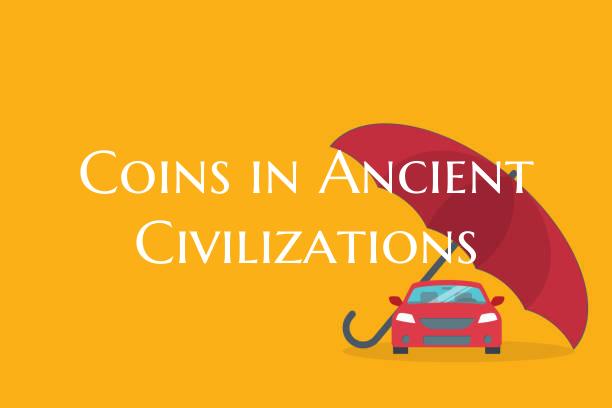Coins in Ancient Civilizations
Introduction: Coins have played a crucial role in the development of ancient civilizations across the world. Dating back to thousands of years ago, the use of coins revolutionized trade, commerce, and economy in various ancient societies. This article explores the significance of coins in ancient civilizations, shedding light on their evolution, purpose, and impact on the growth of these early cultures.
1. The Invention of Coins: The concept of using coins as a form of currency emerged independently in different ancient civilizations such as Mesopotamia, Egypt, China, and the Mediterranean region. Initially, coins were made of precious metals like gold, silver, and bronze, and their value was based on the metal content they contained. The standardization of coins facilitated easier trade and created a system of exchange that transcended language and cultural barriers.
2. Economic Importance: Coins played a vital role in stimulating economic activity in ancient civilizations. They provided a medium of exchange that enabled people to conduct transactions efficiently and facilitated the growth of markets and trade networks. The introduction of coins also allowed for the accumulation of wealth, the payment of taxes, and the development of complex financial systems.
3. Symbolism and Artistry: Coins in ancient civilizations were not just utilitarian objects but also served as powerful symbols of the ruling authority and cultural identity. Many ancient coins featured intricate designs, symbols, and inscriptions that celebrated the achievements of kings, emperors, or gods. These coins were often used as a means of propaganda, spreading messages of power and legitimacy to the population.
4. Spread of Cultural Influence: The circulation of coins in ancient civilizations played a significant role in spreading cultural influence beyond the borders of individual empires. As coins exchanged hands in trade and commerce, they carried with them images and inscriptions that promoted the values, beliefs, and achievements of the issuing civilization. This helped in fostering connections between different societies and enhancing cross-cultural exchange.
5. Legacy and Influence: The legacy of coins in ancient civilizations can still be seen today in modern monetary systems and numismatics. The study of ancient coins provides valuable insights into the political, economic, and social dynamics of past societies. Moreover, the artistry and craftsmanship of ancient coins continue to captivate collectors and historians, highlighting the enduring impact of these small yet powerful artifacts.
Conclusion: Coins in ancient civilizations were more than just pieces of metal; they were instrumental in shaping the economic, political, and cultural landscapes of early societies. Through their invention, circulation, and symbolism, coins became essential tools for trade, communication, and the projection of power. By understanding the role of coins in ancient civilizations, we gain a deeper appreciation for the complexities and innovations of our ancestors' civilizations.
